
6 minute read
GoodDot CEO, Abhishek Sinha
ABHISHEK SINHA
CEO of GoodDot
Advertisement
BY KARIN OLSEN / PLANT POWER PRODUCTIONS
The entrepreneur talks about making the world a more humane place for animals by creating ethical, healthier, and environmentally sustainable alternative to animal meat
In 2003 Abhishek Sinha was in his final year of engineering when he unknowingly planted the seed for GoodDot, India’s leading homegrown mock meat brand. It all started when he came across a tissue culture study that fascinated him personally and from a business perspective. Sinha thought if he could get something similar product-wise into the market, it would appeal to millions of people who, like him, enjoy the taste of meat but don’t want to exploit animals. He partnered with Deepak Parihar to grow the idea, and by 2013 they assembled their team; in 2016, they founded the company and, in 2017, launched their first product – a plant-based version of mutton, laying the groundwork to add vegan chicken, beef and fish. Inspired by some of the leading companies like the Beyond meats of the world, the partners had early confidence that mock meats were the real deal. Sinha said, “We realized from the start that if you have the right product and the right strategy, you can really disrupt the meat sector, so that was our initial inspiration point.”
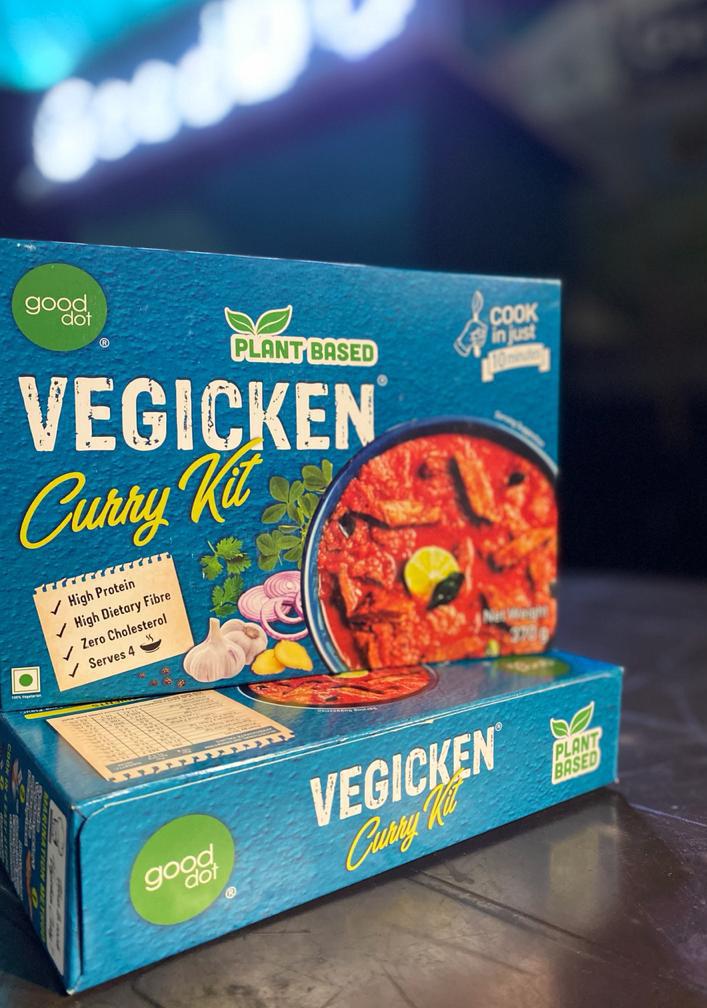
they created their own, employing three key differentiators. In contrast to pricing products as a premium to meat, the founders considered price a significant barrier to transition for people in India and other developing countries. “We had to develop solutions that would be at least price parity and even better if products were more affordable than meat to help further the transition away from meat.” Secondly, he said, “Since the cold storage logistics and transportation supply are not that great in most parts of the world, we developed products which are shelf-stable at room temperature with a long shelf-life.”
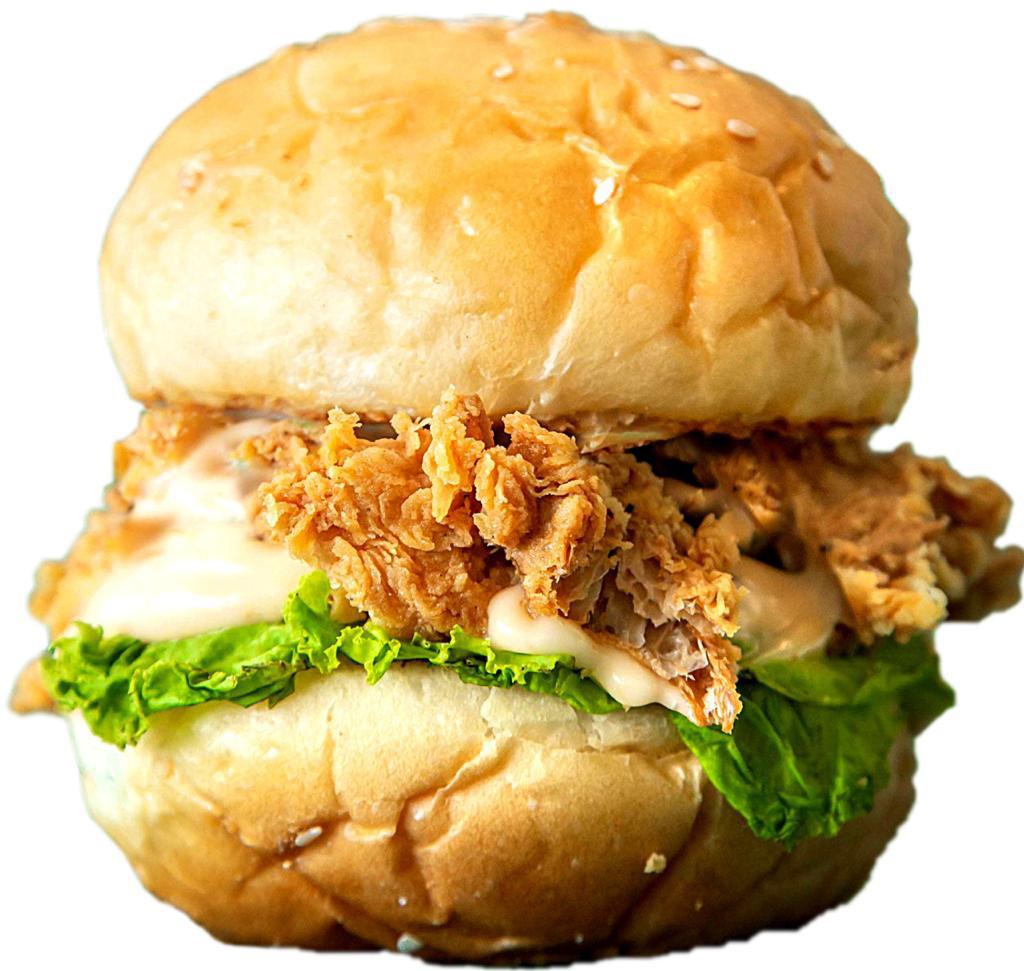
Thirdly he said, “We wanted to go for a larger addressable market by focusing on the core textured “upstream” products like chunks of meat like chicken, mutton, beef, fish, tuna rather than downstream products like burgers, sausages, etc. We plan to roll out downstream products like curries, tikkas, biryanis, burgers, nuggets, etc.”
One popular modification was the company’s Proteiz product, developed at the request of vegetarians. Sinha said the dehydrated product boiled to rehydrate is popular with that sector because it’s not as “meaty” as some of GoodDot’s other core products. “It’s versatile. It makes an excellent alternative to chicken and can also be used to make a very good egg scramble.”
GoodDot has also developed a plant-based tuna that he said will soon launch in the Western markets, bypassing India. “Tuna is not a major meat or fish consumed in India, so it doesn’t make much sense to launch here. However, outside India, there is a big market, and we expect our tuna product to have tremendous appeal. We did blind tastes with five-star chefs and others who have said the products were indistinguishable from actual tuna.”
The company just launched three products in North America, starting in Canada,
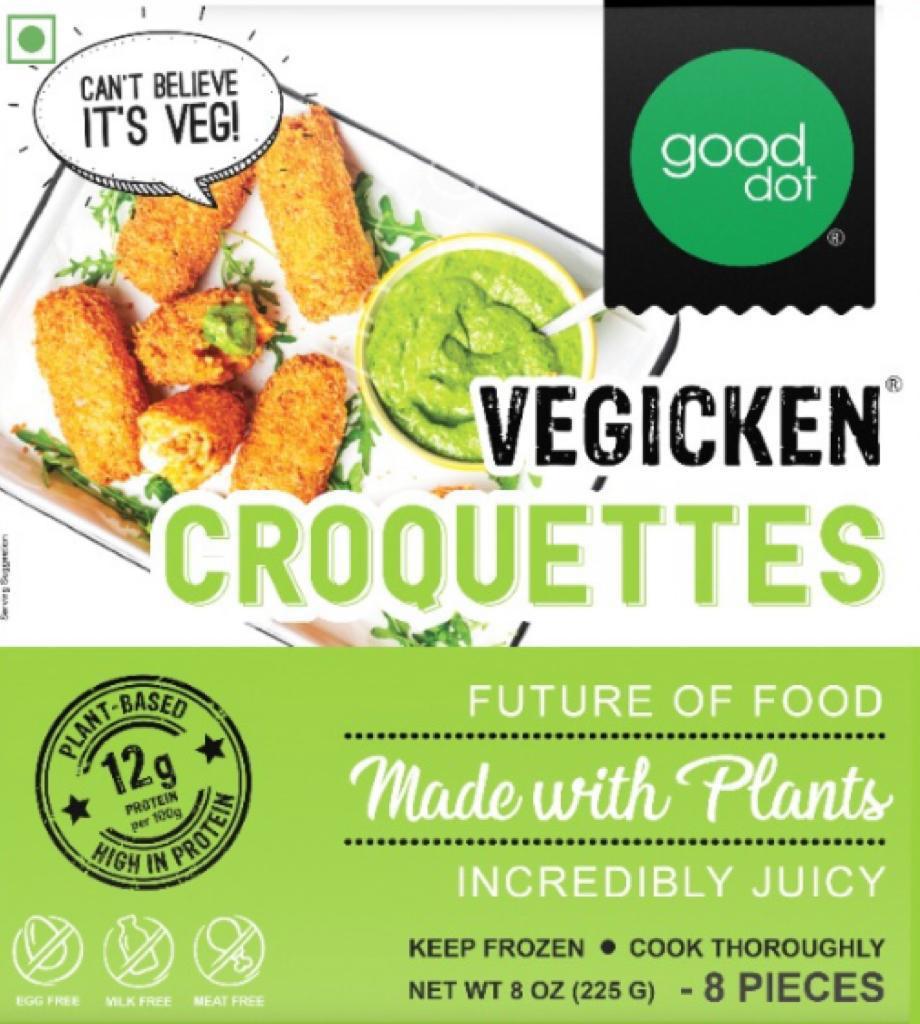

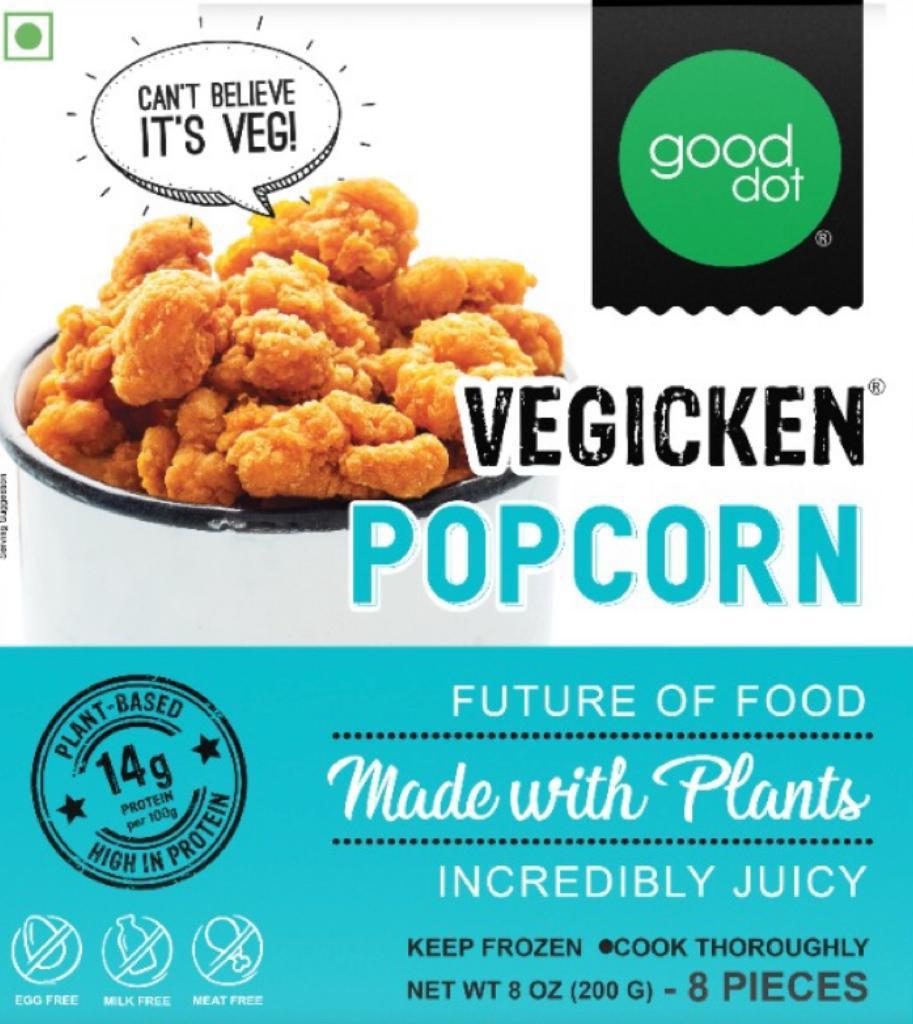
with four more planned in the coming months. The company plans to launch a vegan butter chicken through AMAZON in the U.S. market as the first of many products once they finalize distribution in the next month. He said they expect GoodDot’s extensive offerings and uniquely differentiated product lines will be well-received in the U.S. “For instance, uniquely, we can go an exotic route like Indian dishes with plant-based meat that is shelf-stable, reasonably affordable, and easy to cook and eat. And that is just the start.”
In India, GoodDot has a sister company named GoodDo, a series of vegan fast-food outlets currently in India and Nepal named after a rescue group called GoodDo. The company is also developing a smaller footprint model of GoodDo that will launch across India in the coming months. “With this smaller concept, we feel we can go to the consumer in a much faster manner and make it prohibitive to go for a meat option. Our goal is to also offer pricing at such a steep discount below meat and chicken it will be difficult for someone to pass it up.”
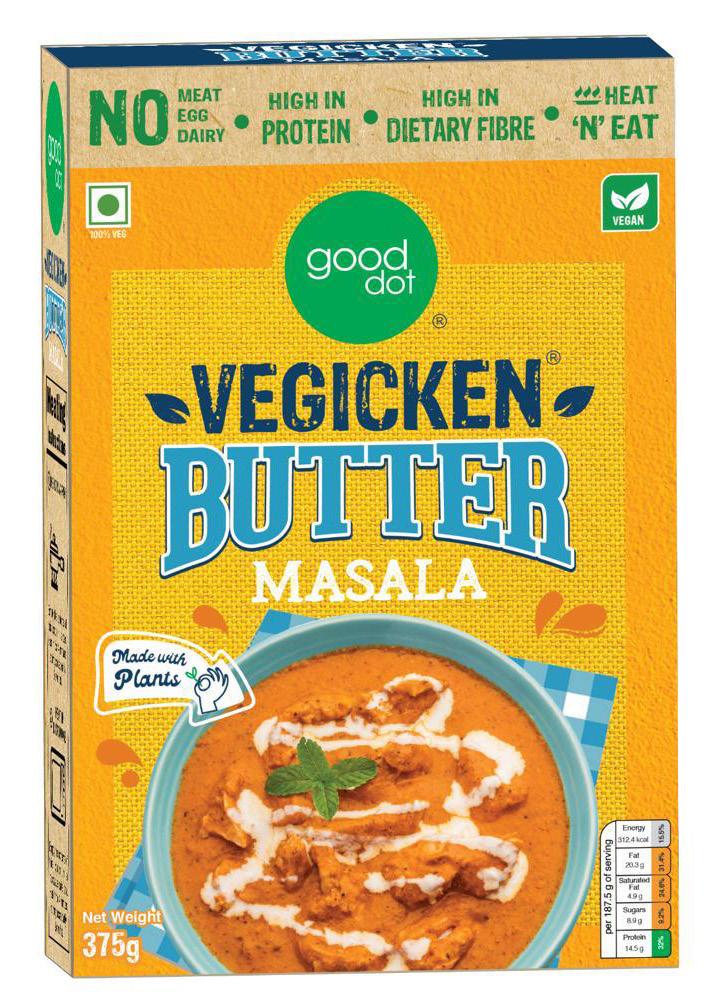
To prepare for the expansive international growth, Sinha said the company is currently in talks with venture capitalists. However, to date, he emphasized GoodDot has been bootstrapped and cash-positive, having broken even due to the early foundation. “All of this happened because we hustled and didn’t have much noise at the onset. We focused razor-sharp on the product, what does and does not work and what could work from the start. Throughout the last four years since our first product launch, we developed several strengths, including understanding what works in India, the variables of different models, and how we can cut down on the cost while increasing the taste profile.” As a result, he said the company is primed for a strong move this year. “Even outside of India, we could implement the models we are developing here. For example, there are no Indian restaurant chains across the world because it is so chef-dependent. The spice mix alone would be difficult to standardize. Consider this – even if we have a strong formula with so much chili, tomatoes, and spices, the taste profile of those raw materials changes even in countries and states. In some places, tomatoes would be sour and other places much milder, so it’s very difficult to standardize. In a new concept, what we have done is take the kitchen part into the factory side where no skill is needed on the front end. Anyone can learn it in a day and start working in the shop.” He offered the example of a recently launched curry with vegan meat. “In 10 minutes, you can have a fresh curry made in front of you. It’s very easy, scalable, and standardized.”
While riding high on GoodDot’s popularity and global expansion, Sinha emphasized true success for him is inextricably linked to the company’s larger mission to reduce animal suffering. “The GoodDot team and I are driven by the ethical aspects of plant-based meat. On a personal level, I have much more than I ever needed, but from an
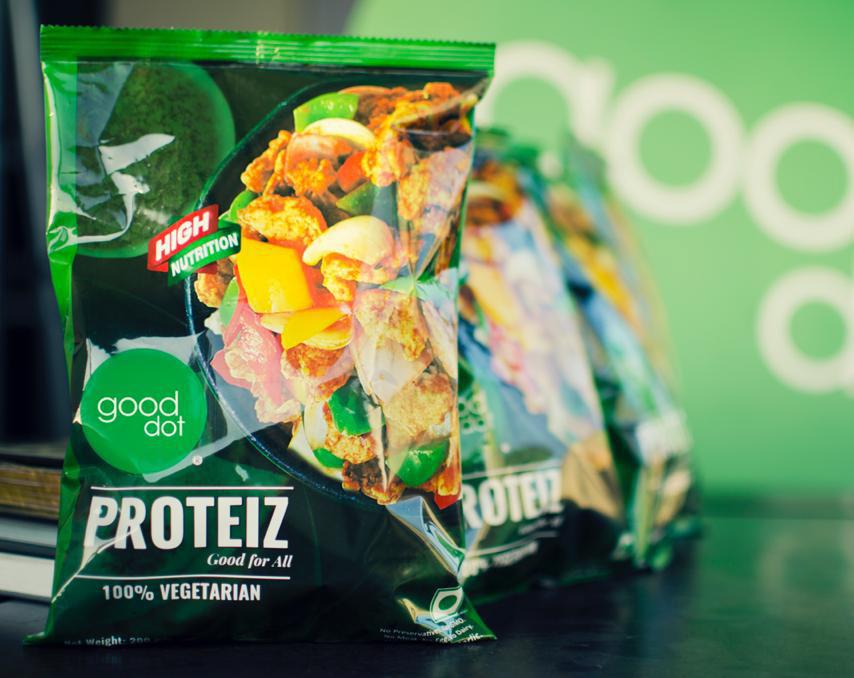
organizational-goal perspective, much more needs to be done to make the world a more compassionate place for animals. I visualize aggregating the needs of billions of animals for a more compassionate world. The fact our sales metrics are linked to reducing the number of animals killed for meat really drives us. We feed 60-70 stray animals every day, and, as we scale up, I intend to contribute more on a personal level for animal welfare.”


